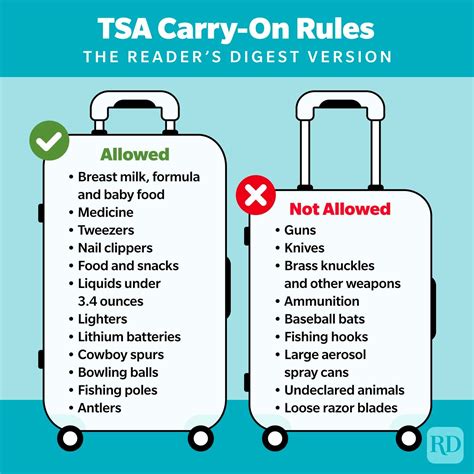
Summer travelers are warned to maintain respectful behavior in airports as the Transportation Security Administration (TSA) braces for a surge in passenger volume, with a zero-tolerance policy for unruly conduct. The agency emphasizes that disruptions at security checkpoints will not be tolerated and may result in penalties, including hefty fines and potential criminal charges.
TSA Warns: Respectful Behavior Required for Summer Travel
The Transportation Security Administration (TSA) is sending a clear message to summer travelers: disrespectful or unruly behavior will not be tolerated at airport security checkpoints. As passenger volumes are expected to surge during the summer months, the TSA is emphasizing the importance of maintaining a respectful and orderly environment to ensure efficient and safe security screenings. The agency has adopted a zero-tolerance policy for disruptive conduct, warning that individuals who engage in such behavior may face significant penalties, including substantial fines and potential criminal charges.
“We have zero tolerance for unruly passengers,” TSA Administrator David Pekoske stated firmly. “Travelers don’t have to like every rule, but please follow them. Threats, violence, or any type of abusive behavior against our employees will not be tolerated. It’s unacceptable and can lead to stiff penalties.”
The TSA’s warning comes amid growing concerns about the increasing number of incidents involving disruptive passengers at airports and on airplanes. Such incidents not only delay security screenings and disrupt travel schedules but also pose a risk to the safety and well-being of TSA officers and other passengers.
Heightened Vigilance and Enhanced Security Measures
To address these concerns, the TSA has implemented enhanced security measures and increased vigilance at airports nationwide. TSA officers are trained to identify and respond to potential threats, as well as to de-escalate tense situations. The agency is also working closely with airport authorities and law enforcement agencies to ensure that any disruptive behavior is promptly addressed and that offenders are held accountable for their actions.
“Our TSA officers are on the front lines of protecting our transportation system, and they deserve to be treated with respect,” said Pekoske. “We will not hesitate to take action against those who engage in unruly or disruptive behavior.”
The TSA’s zero-tolerance policy applies to a wide range of behaviors, including but not limited to:
- Verbal abuse or threats against TSA officers or other passengers.
- Physical assault or violence.
- Interference with security screening procedures.
- Disruptive or disorderly conduct that disrupts the security checkpoint.
- Public intoxication.
Penalties for Unruly Behavior
Individuals who engage in such behavior may face a range of penalties, including:
- Civil penalties: The TSA can impose civil penalties of up to \$13,910 per violation for unruly behavior.
- Criminal charges: Depending on the severity of the offense, individuals may face criminal charges, such as assault, battery, or disorderly conduct.
- Arrest and detention: Law enforcement officers may arrest and detain individuals who engage in unruly behavior at airports.
- Flight bans: Airlines may ban disruptive passengers from future flights.
- Loss of PreCheck eligibility: Individuals who engage in unruly behavior may lose their eligibility for TSA PreCheck, a program that allows expedited security screening.
Cooperation is Key to Smooth Travel
The TSA is urging travelers to cooperate with security officers and to follow all instructions and guidelines. Passengers are also advised to arrive at the airport with ample time to go through security screening, especially during peak travel periods.
“We understand that traveling can be stressful, but there is no excuse for unruly behavior,” said Pekoske. “By working together and treating each other with respect, we can ensure a safe and efficient travel experience for everyone.”
The TSA offers several tips for travelers to help them prepare for security screening and avoid potential disruptions:
- Review the TSA’s website for a list of prohibited items.
- Pack liquids, gels, and aerosols in a quart-sized bag.
- Remove electronic devices from carry-on bags.
- Wear shoes that are easy to remove.
- Be prepared to show identification.
- Follow the instructions of TSA officers.
Past Incidents Highlight the Need for Respect
The TSA’s warning comes after a string of incidents involving unruly passengers at airports across the country. In one recent incident, a passenger was arrested after allegedly assaulting a TSA officer at a security checkpoint. In another incident, a passenger was fined for yelling and cursing at TSA officers. These incidents highlight the need for travelers to maintain respectful behavior and to avoid engaging in disruptive conduct.
The agency hopes that by raising awareness and emphasizing the consequences of unruly behavior, it can deter future incidents and ensure a safe and efficient travel experience for all.
Impact on Travel Industry and Safety
The rise in unruly passenger behavior has far-reaching implications for the travel industry and overall safety. Flight attendants, TSA officers, and other airport personnel are increasingly facing verbal and physical abuse, creating a hostile work environment. Delays caused by these incidents disrupt flight schedules, leading to missed connections and increased costs for airlines and passengers. Moreover, the potential for escalation poses a significant safety risk, as confrontations can distract security personnel and compromise the integrity of the screening process.
The TSA’s stance underscores the broader effort to maintain order and safety within the aviation system. By setting a firm boundary against unacceptable conduct, the agency aims to protect its employees and the traveling public from unnecessary disruptions and potential harm. This approach is essential for fostering a culture of respect and responsibility, ensuring that air travel remains a safe and efficient mode of transportation.
Collaboration with Airlines and Airports
To effectively address the issue of unruly passenger behavior, the TSA is working in close collaboration with airlines and airports. Airlines play a crucial role in identifying and reporting incidents that occur on board, while airports are responsible for maintaining order within their facilities. The TSA coordinates with these entities to share information, develop best practices, and implement consistent enforcement measures.
This collaborative approach is vital for creating a unified front against disruptive conduct. By working together, the TSA, airlines, and airports can send a clear message that unruly behavior will not be tolerated and that offenders will be held accountable for their actions. This coordinated effort is essential for ensuring a safe and secure travel environment for everyone.
Beyond Enforcement: Education and Prevention
While enforcement is a necessary component of the TSA’s strategy, the agency also recognizes the importance of education and prevention. The TSA is actively engaged in educating travelers about the rules and regulations governing airport security, as well as the potential consequences of unruly behavior. This includes providing information through its website, social media channels, and public service announcements.
By promoting awareness and understanding, the TSA aims to prevent incidents from occurring in the first place. This proactive approach is essential for fostering a culture of respect and responsibility, ensuring that travelers are aware of their obligations and the importance of maintaining orderly conduct at airport security checkpoints.
Long-Term Strategies for Managing Disruptive Behavior
The TSA is also exploring long-term strategies for managing disruptive behavior in the aviation system. This includes developing enhanced training programs for TSA officers, implementing improved screening technologies, and strengthening partnerships with law enforcement agencies.
These long-term strategies are designed to address the root causes of unruly behavior and to create a more resilient and secure travel environment. By investing in training, technology, and collaboration, the TSA is working to ensure that air travel remains a safe and efficient mode of transportation for generations to come.
The Role of Passenger Responsibility
Ultimately, the responsibility for maintaining order and safety in the aviation system rests with each individual passenger. Travelers are expected to adhere to the rules and regulations governing airport security, to treat TSA officers and other passengers with respect, and to avoid engaging in disruptive or unruly behavior.
By taking personal responsibility for their actions, passengers can contribute to a more positive and secure travel experience for everyone. This includes arriving at the airport with ample time to go through security screening, packing responsibly, and following the instructions of TSA officers.
TSA PreCheck and Global Entry: Expedited Screening Programs
The TSA offers several expedited screening programs, such as TSA PreCheck and Global Entry, which allow eligible travelers to move through security checkpoints more quickly and efficiently. These programs can help to reduce stress and delays, making the travel experience more enjoyable.
To participate in these programs, travelers must undergo a background check and pay a fee. However, the benefits of expedited screening can be significant, especially for frequent travelers. By enrolling in TSA PreCheck or Global Entry, travelers can save time and avoid potential disruptions at airport security checkpoints.
The Psychological Factors Behind Unruly Behavior
Understanding the psychological factors that contribute to unruly behavior is essential for developing effective strategies to prevent and manage such incidents. Several factors can contribute to passenger frustration and aggression, including travel-related stress, anxiety, and fatigue. Additionally, alcohol and drug use can impair judgment and increase the likelihood of disruptive behavior.
By addressing these underlying psychological factors, the TSA and other stakeholders can work to create a more supportive and understanding travel environment. This includes providing resources for managing stress and anxiety, promoting responsible alcohol consumption, and offering assistance to travelers who may be struggling with mental health issues.
The Impact of Social Media on Travel Behavior
Social media has had a profound impact on travel behavior, both positive and negative. On the one hand, social media platforms can provide valuable information and resources for travelers, helping them to plan their trips and stay informed about potential disruptions. On the other hand, social media can also contribute to the spread of misinformation and encourage negative behavior.
The TSA is actively engaged in monitoring social media channels for potential threats and disruptive activity. The agency also uses social media to communicate with travelers and to provide information about airport security procedures. By leveraging the power of social media, the TSA aims to promote responsible travel behavior and to ensure a safe and secure travel environment for everyone.
The Future of Airport Security
The future of airport security is likely to be shaped by a number of factors, including technological advancements, evolving threats, and changing travel patterns. The TSA is constantly working to improve its security procedures and to implement new technologies that can enhance security screening and streamline the travel process.
Some of the emerging technologies that are being explored include advanced imaging systems, biometric identification, and artificial intelligence. These technologies have the potential to revolutionize airport security, making it more efficient, effective, and less intrusive.
Balancing Security and Convenience
One of the key challenges facing the TSA is balancing security and convenience. The agency must ensure that airport security measures are effective in preventing terrorist attacks and other security threats, while also minimizing the impact on travelers.
To achieve this balance, the TSA is constantly working to improve its security procedures and to implement new technologies that can enhance security screening without causing unnecessary delays or inconvenience. The agency also relies on the cooperation of travelers to help maintain a safe and efficient travel environment.
The Importance of Public Awareness
Public awareness is essential for ensuring the success of airport security efforts. Travelers need to be informed about the rules and regulations governing airport security, as well as the potential consequences of unruly behavior.
The TSA is actively engaged in raising public awareness through its website, social media channels, and public service announcements. The agency also works with airlines and airports to disseminate information to travelers. By promoting public awareness, the TSA aims to create a more informed and responsible traveling public.
The Role of International Cooperation
International cooperation is also essential for ensuring the security of the global aviation system. The TSA works closely with its counterparts in other countries to share information, develop best practices, and coordinate security efforts.
This international cooperation is vital for addressing transnational security threats and for ensuring that air travel remains a safe and secure mode of transportation for everyone.
Continuous Improvement and Adaptability
The TSA is committed to continuous improvement and adaptability. The agency is constantly evaluating its security procedures and implementing new technologies to address evolving threats and to improve the travel experience.
This commitment to continuous improvement is essential for ensuring that airport security remains effective and responsive to the changing needs of the aviation system.
Conclusion: A Collective Responsibility
Maintaining order and safety in the aviation system is a collective responsibility. The TSA, airlines, airports, and passengers all have a role to play in ensuring that air travel remains a safe and efficient mode of transportation.
By working together, we can create a more positive and secure travel environment for everyone. This includes adhering to the rules and regulations governing airport security, treating TSA officers and other passengers with respect, and avoiding engaging in disruptive or unruly behavior.
The TSA’s warning serves as a reminder that disrespectful or unruly behavior will not be tolerated and that offenders will be held accountable for their actions. By taking personal responsibility for our actions, we can all contribute to a safer and more enjoyable travel experience.
Frequently Asked Questions (FAQ)
Q1: What specific behaviors are considered “unruly” by the TSA and subject to penalties?
A1: The TSA considers a wide range of behaviors as unruly, including verbal abuse or threats against TSA officers or other passengers, physical assault or violence, interference with security screening procedures, disruptive or disorderly conduct that disrupts the security checkpoint, and public intoxication. Any behavior that compromises the safety and efficiency of the security screening process falls under this category.
Q2: What are the potential penalties for engaging in unruly behavior at a TSA checkpoint?
A2: Individuals engaging in unruly behavior may face several penalties. The TSA can impose civil penalties of up to \$13,910 per violation. Depending on the severity of the offense, criminal charges such as assault, battery, or disorderly conduct may be filed, leading to arrest and detention. Airlines may ban disruptive passengers from future flights, and individuals may lose eligibility for TSA PreCheck.
Q3: How can travelers avoid accidentally violating TSA rules and regulations at security checkpoints?
A3: Travelers can avoid violations by thoroughly reviewing the TSA’s website for a list of prohibited items and guidelines for packing. It’s essential to pack liquids, gels, and aerosols in a quart-sized bag, remove electronic devices from carry-on bags, wear shoes that are easy to remove, and be prepared to show identification. Following the instructions of TSA officers and cooperating with security procedures is crucial.
Q4: What measures are TSA officers trained to take when dealing with disruptive passengers?
A4: TSA officers are trained to identify and respond to potential threats and to de-escalate tense situations. Their training includes techniques for managing conflicts, communicating effectively with passengers, and identifying signs of distress or potential aggression. They are also trained to work closely with airport authorities and law enforcement agencies to ensure that any disruptive behavior is promptly addressed.
Q5: How are airlines and airports collaborating with the TSA to address the issue of unruly passenger behavior, and what role do they play in preventing such incidents?
A5: Airlines and airports collaborate with the TSA through information sharing, developing best practices, and implementing consistent enforcement measures. Airlines report incidents that occur on board, while airports maintain order within their facilities. This collaboration creates a unified front against disruptive conduct, ensuring a safe and secure travel environment. Airlines can also refuse to board or deplane disruptive passengers, and airports can provide additional security personnel to assist with managing unruly behavior.





